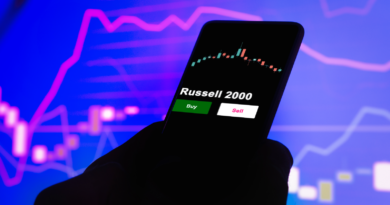The Next Big Thing to Disrupt the $5 TRILLION E-Commerce Market
Let me ask you a simple question: how do you discover new brands and products?
Do you still use magazines and physical catalogs? Or are you an Amazon.com person? Maybe you use Google?
Well, if you’re like most people, the number one way you discover new brands and products isn’t any of those things.
Instead, it’s through social media.

About 3.4 BILLION people across the globe are plugged into social media. Of those 3.4 billion people, 80% use social media to discover new brands… and more than 75% have bought a product because of a social media post or interaction.
The Tie Between E-Commerce and Social Media
Indeed, a recent Square (NYSE:SQ) survey asked 1,800 U.S. consumers what was the number one way they discovered new businesses.
The most popular answer? Facebook (NASDAQ:FB) — and it wasn’t close.
That shouldn’t be all that surprising.
After all, the average user spent two hours and 24 minutes per day on social media platforms in 2020. And while social media used to be a place where friends shared posts and images, it’s now a digital “town hall” of sorts where businesses and influencers are pushing products and services all the time.
Naturally, if you spend two and a half hours in that kind of forum, you’re going to be exposed to all sorts of new products and services. On top of all that, companies like Facebook and Twitter (NYSE:TWTR) are leveraging millions of data points about your interests to match you to ads for products and services that you’ll be interested in — so, basically, the social media feeds you spend over two hours in every day are just personalized collections of product and service promotions.
Of course, you’re going to be interested in some of those products and services.
But that’s where the whole process has traditionally stopped on social media — with interest. Because once interested, the traditional model would have you click on that post or ad, at which point you get redirected to a new website and leave the entire social media ecosystem.
I don’t know about you, but as soon as that happens, I hit the “back” button as fast as I can. I don’t want to learn a whole new website, browse through new products, and after all that, have to enter new payment info if I end up buying anything.
What if the social media product discovery process didn’t have to end with interest? What if social media platforms allowed you to buy products and services directly on their platforms?
That’s exactly what is happening right now, and it’s giving birth to a brand-new industry that I think can be the next big thing in retail – Social Shopping.
And What IS Social Shopping?
One example: Just last week, e-commerce solutions provider Shopify — which provides online selling solutions to an army of small merchants and retailers across the globe — linked up with TikTok — the ultra-popular video streaming platform — to allow TikTok users to shop directly in the TikTok app for the first time ever.
Another example: A few weeks prior, Poshmark (NASDAQ:POSH) — the online e-commerce resale platform — and Snap (NYSE:SHOP) — the photo-sharing social media app — partnered on a social shopping initiative that will allow Poshmark sellers to sell through Snap.
Folks, the Social Shopping Revolution is upon us.
The economic implications are huge. Global e-commerce sales are expected to march toward $5 TRILLION this year, according to eMarketer.
Considering 80% of consumers use social media to discover new brands, we think it’s very likely that a big chunk of that $5 trillion sales pie will migrate into social shopping channels over the next decade as Facebook, Snap, Pinterest, Twitter, Instagram, TikTok, and others flesh out robust social shopping experiences.
The implication is that legacy e-commerce platforms like Amazon (NASDAQ:AMZN) and Etsy (NASDAQ:ETSY) may come under pressure from increased competition from social media platforms in the 2020s – and that, more importantly, those social media platforms could build out huge e-commerce businesses that complement their digital advertising empires (most social platforms monetize through ads).
Sound like a reason to be bullish on social media stocks?
It absolutely is!
That’s why, in our exclusive investment research advisory Innovation Investor, we’ve hand-picked our favorite digital media stocks to buy for huge gains over the next decade, and put them all into a smartly constructed portfolio we call the Digitainment portfolio.
We firmly believe this portfolio has 5X or greater upside potential over the next five-plus years – and it’s only one of eight different portfolios we have smartly constructed in Innovation Investor to capitalize on every important investment megatrend in the market today.
To gain access to that portfolio and position yourself for a decade of hypergrowth gains ahead, click here.
On the date of publication, Luke Lango did not have (either directly or indirectly) any positions in the securities mentioned in this article.




